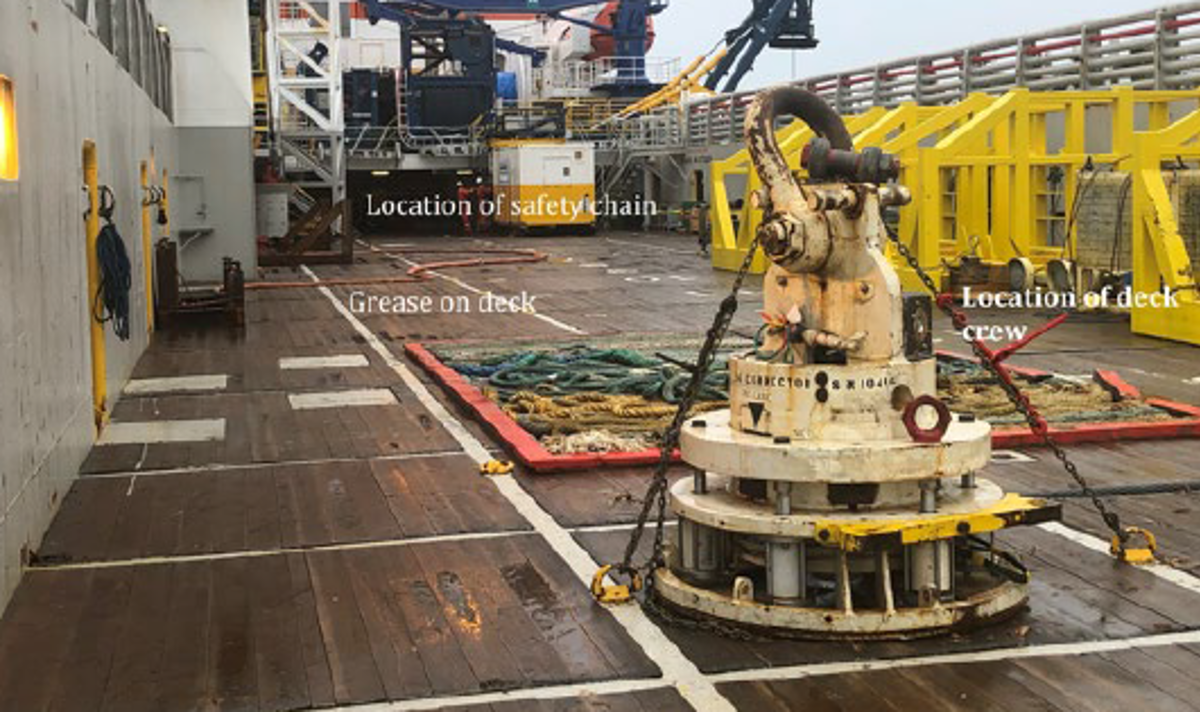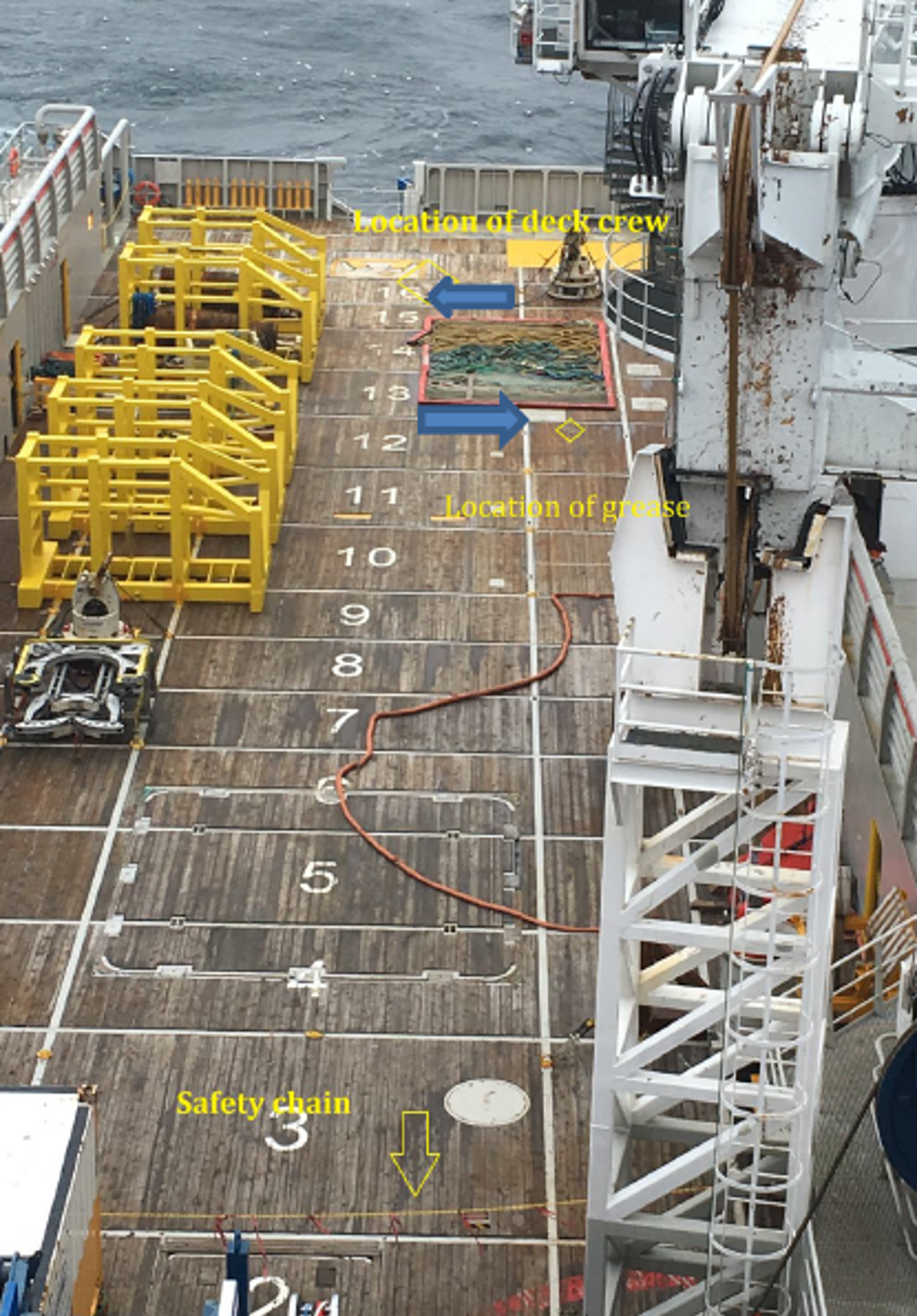Grease itself is a dropped object!
- Safety Flash
- Published on 17 September 2019
- Generated on 23 February 2026
- IMCA SF 22/19
- 2 minute read
Jump to:
During crane operations on an offshore vessel, quantities of grease fell from the crane block and landed on deck.
What happened?
The incident occurred in daylight, when a wellhead head was landed into its frame on the starboard side main deck.
Riggers were standing by in a safe area ready to work on the load, when the client representative (who was present) heard a ‘splash’ sound and noted grease lying on the deck directly below the crane block.
This was a near miss; there were no injuries.

What went wrong? What were the causes?
The engine room crew greased the crane wire using the recommended greasing tool. The crew paid out the wire to 2800m, rinsed the wire and lubricated with the core lube pneumatic lubricator “Enviro X-433 EAL”. 2 x 19l pails were used.
The increased water pressure, combined with the increased wire temperature, caused the grease to come out of wire (could be mixture of original grease and the newly applied grease).
The crane manual does not provide a recommendation on the amount of grease to apply to the wire.

What actions were taken?
- Crane operations were stopped; the crane was racked and cleaned of excess grease.
- Crane pre-use checklist and toolbox talk (TBT) to include dropped grease hazard, both updated to include potential dropped objects and highlight potential for falling grease.
- Visual inspections on the accumulation points and removing excess grease.
What lessons were learned?
- Although classified as a liquid, crane grease is slightly viscous (between solid and liquid) and once a certain amount accumulates, it will drop to a lower level.
- Accumulation points are mainly the chandelier and sheave.
- Crane wire grease should be considered a dropped object.
- A ‘dropped object’ is any item that falls from its previous position.
Members may wish to refer to:
- IMCA DROPS videos:
- IMCA HSS039 – Technip DROPS
- IMCA HSS042 – DROPS – choice not chance
- DROPS [shared by Subsea 7]
- IMCA HSS039 – Technip DROPS
Featured Safety Flashes
-
IMCA SF 33/16
6 December 2016
-
IMCA SF 11/15
10 August 2015
IMCA Safety Flashes summarise key safety matters and incidents, allowing lessons to be more easily learnt for the benefit of the entire offshore industry.
The effectiveness of the IMCA Safety Flash system depends on the industry sharing information and so avoiding repeat incidents. Incidents are classified according to IOGP's Life Saving Rules.
All information is anonymised or sanitised, as appropriate, and warnings for graphic content included where possible.
IMCA makes every effort to ensure both the accuracy and reliability of the information shared, but is not be liable for any guidance and/or recommendation and/or statement herein contained.
The information contained in this document does not fulfil or replace any individual's or Member's legal, regulatory or other duties or obligations in respect of their operations. Individuals and Members remain solely responsible for the safe, lawful and proper conduct of their operations.
Share your safety incidents with IMCA online. Sign-up to receive Safety Flashes straight to your email.